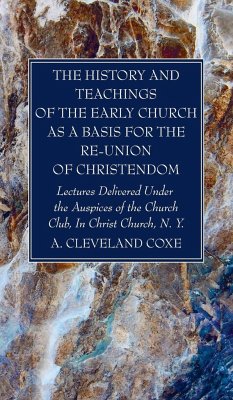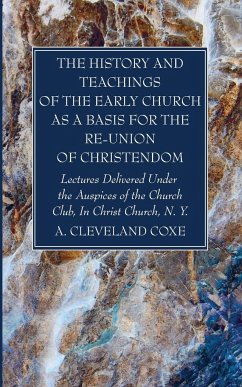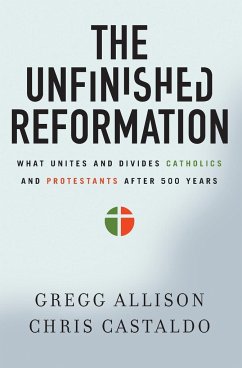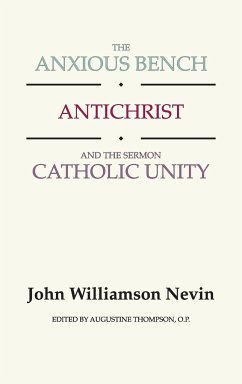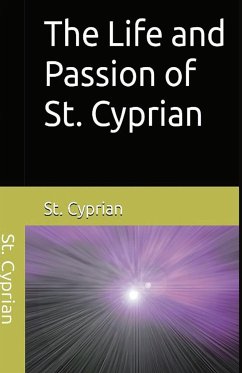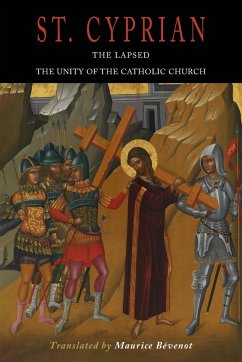
The Lapsed / The Unity of the Catholic Church
Versandkostenfrei!
Versandfertig in 1-2 Wochen
13,99 €
inkl. MwSt.

PAYBACK Punkte
7 °P sammeln!
2022 Reprint of the 1957 Edition. Exact facsimile of the original edition and not reproduced with Optical Recognition Software. Cyprian was a pagan public speaker and teacher from Carthage in North Africa who converted to Christianity around the year 246 AD. He immediately set himself to the study of Scripture and the writings of the first great Latin theologian from North Africa, Tertullian. Saint Cyprian grew so rapidly in holiness and knowledge of the faith that he was appointed bishop of Carthage only two years later. Within only a few months of his election to the episcopacy, the persecut...
2022 Reprint of the 1957 Edition. Exact facsimile of the original edition and not reproduced with Optical Recognition Software. Cyprian was a pagan public speaker and teacher from Carthage in North Africa who converted to Christianity around the year 246 AD. He immediately set himself to the study of Scripture and the writings of the first great Latin theologian from North Africa, Tertullian. Saint Cyprian grew so rapidly in holiness and knowledge of the faith that he was appointed bishop of Carthage only two years later. Within only a few months of his election to the episcopacy, the persecution of Decius broke out and Cyprian was forced to flee his see. Upon returning, he set himself to dealing with the problem of the reconciliation, after suitable penance, of those who buckled under pressure and lapsed in their faith. After a few years of peace, the persecution of the emperor Valerian began. Cyprian gave himself up and was martyred in Carthage on September 14, 258. St. Cyprian's writings that survive are mainly letters and short treatises. Most notable among them are De Catholicae Ecclesiae Unitatis (251) on the Unity of the Catholic Church and the importance of the Episcopate as safeguard of this unity. St. Cyprian's writings portray vividly the life of the Christian Church in the middle of the third century. The two pastoral addresses of this intensely devout bishop reveal the aftermath of the persecution by the Emperor Decius.



